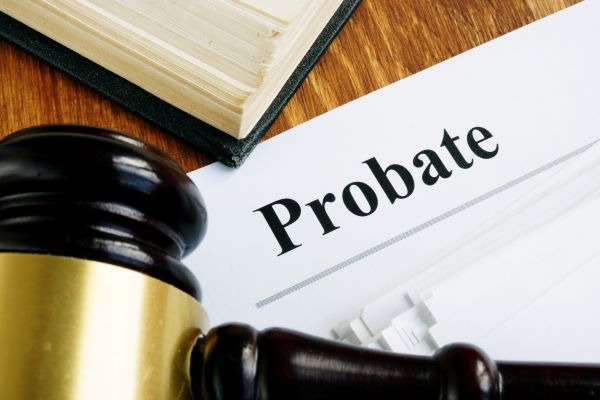
When it comes to managing a loved one’s estate after their passing, the process can quickly become overwhelming. Estate administration involves navigating legal procedures, managing financial matters, and resolving potential disputes among heirs. Choosing the right probate lawyer can make this process significantly smoother, ensuring that the estate is handled properly and efficiently. In this blog, we’ll explore why selecting the right probate lawyer is crucial for protecting your estate and your family’s interests.
Understanding the Role of a Probate Lawyer
A probate lawyer is a legal professional who proficient in guiding families and executors through the probate process. Probate involves validating a deceased person’s will, paying off debts, and distributing assets to beneficiaries according to the law. The role of a probate lawyer goes beyond simply filing paperwork—they provide legal guidance, protect the executor from liability, and help resolve conflicts that may arise during estate administration.
The probate process can vary depending on the size and complexity of the estate, as well as state-specific laws. A skilled probate lawyer understands these nuances and can navigate them effectively, ensuring that the estate is administered in compliance with legal requirements.
Ensuring Legal Compliance
One of the most important reasons to hire the right probate lawyer is to ensure that all aspects of the estate administration comply with state and federal laws. Filing incorrect documents, missing deadlines, or failing to notify creditors properly can lead to legal complications and delays.
A probate lawyer handles all necessary filings with the court, prepares detailed inventories of assets, and ensures that notices to beneficiaries and creditors are sent in accordance with legal requirements. By managing these legal obligations accurately, the lawyer minimizes the risk of errors that could impact the distribution of assets or create liability for the executor.

Protecting the Executor and Beneficiaries
Executors or administrators of an estate have a legal duty to manage the estate responsibly. Mistakes, even unintentional ones, can expose them to personal liability. The right probate lawyer provides guidance on the executor’s responsibilities, including:
-
Collecting and safeguarding estate assets
-
Paying outstanding debts and taxes
-
Filing required court documents
-
Distributing assets according to the will or state laws
By offering professional advice and oversight, a probate lawyer protects both the executor and beneficiaries, ensuring that the estate is administered fairly and according to the law.
Managing Complex Estates
Some estates are straightforward, but others can involve complex assets such as multiple properties, business interests, investment portfolios, or foreign assets. Handling these types of estates requires proficient knowledge to navigate legal, financial, and tax implications.
A qualified probate lawyer can evaluate the estate’s complexity and provide guidance on managing high-value or unique assets. They can also coordinate with financial advisors, accountants, and appraisers to ensure that the estate is valued accurately and that assets are distributed correctly. This guidance is critical in avoiding costly mistakes that could diminish the value of the estate.
Resolving Disputes
Family disputes over the distribution of assets are unfortunately common during the probate process. Conflicts may arise over the validity of a will, the executor’s decisions, or the interpretation of estate documents. These disputes can lead to lengthy litigation if not handled properly.
A probate lawyer acts as a mediator and legal advocate in such situations. They work to resolve disagreements through negotiation and, if necessary, represent clients in court to ensure that the estate is administered fairly. Having the right lawyer can prevent conflicts from escalating and protect the interests of all parties involved.
Handling Debts and Taxes
Paying off debts and managing taxes is a critical part of estate administration. The estate may owe income taxes, estate taxes, or other liabilities, and creditors must be properly notified and paid. Mismanaging these obligations can result in penalties, legal disputes, or delays in distributing assets.
A probate lawyer ensures that all debts and taxes are handled correctly. They calculate amounts owed, file tax returns, negotiate with creditors, and ensure that the estate’s financial matters are resolved in compliance with the law. Proper handling of these obligations protects the estate and its beneficiaries.
Efficiency and Peace of Mind
Administering an estate can be a lengthy and stressful process, especially for those grieving the loss of a loved one. Choosing the right probate lawyer increases efficiency by streamlining legal procedures and providing clear guidance at every step.
Beyond the technical aspects, a probate lawyer also provides peace of mind. Executors and family members can rely on their guidance to avoid mistakes, resolve conflicts, and ensure that the estate is managed with integrity. This support allows families to focus on healing rather than navigating complex legal procedures.
Selecting the Right Probate Lawyer
Not all probate lawyers have the same level of experience or guidance. When selecting a probate lawyer, consider the following factors:
-
Experience: Look for a lawyer with extensive experience handling probate cases similar to yours.
-
Local Knowledge: A lawyer familiar with local probate courts and laws can navigate the process more efficiently.
-
Communication: Choose a lawyer who communicates clearly and keeps you informed at every stage.
-
Reputation: Check client reviews, testimonials, and referrals to ensure the lawyer is trustworthy and reliable.
-
Fees: Understand the lawyer’s fee structure upfront to avoid surprises during the probate process.
Taking the time to choose the right probate lawyer can make a significant difference in the administration of your estate.
The Long-Term Benefits
Hiring the right probate lawyer not only ensures a smooth probate process but also provides long-term benefits for your estate and family. Proper legal guidance reduces the risk of disputes, minimizes delays, and helps preserve the estate’s value. In addition, it ensures that the deceased’s wishes are honored, providing peace of mind to all parties involved.
By investing in the right legal support, you protect your family’s interests and ensure that the estate is administered efficiently and fairly.
Final Thoughts
Estate administration is a complex and often emotionally challenging process. Choosing the right probate lawyer is essential to navigating this process successfully. From ensuring legal compliance and managing complex assets to resolving disputes and providing peace of mind, a skilled probate lawyer plays a critical role in protecting your estate and your family’s future.
When selecting a probate lawyer, take the time to research, ask questions, and choose a professional with the guidance, experience, and communication skills necessary to handle your estate efficiently. The right choice can make all the difference, ensuring that the estate is administered smoothly and that your loved one’s wishes are carried out faithfully.



